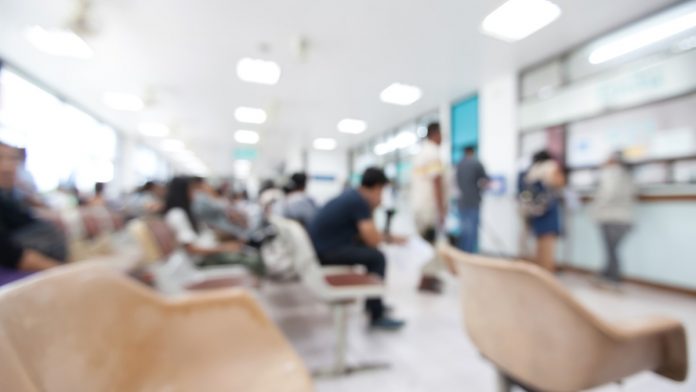Perceived better quality of care and long NHS waiting times are the key reasons for accessing private healthcare, according to new data from patient organisation Healthwatch England.
More than 1,700 adults were polled on their use of private healthcare as part of the organisation’s research into access and inequality in the health system.
Almost a third of respondents said they had accessed private care in the past year. Of those, 37% felt they would get better quality care in the private sector, while 34% cited long NHS waiting lists and 22% said they had paid for a procedure that wasn’t offered by the NHS in their region.
Perceptions over quality of care was even higher in the 18% of respondents who said they had considered but not accessed private healthcare in the last year. More than half said they felt they might receive better quality of care by going private while 34% again cited long NHS waits.
One in seven respondents (14%) reported that an NHS professional had signposted them to private healthcare. The largest group advised to go private were the under-30s.
Healthwatch said this group is already more likely to avoid accessing NHS services, such as dentists and GPs, due to associated travel costs. However, very long waits for the types of services they require, such as mental health and neurodiversity, are also a factor.
In October, research by the Independent Healthcare Providers Network found that 18-25 year-olds were the age group most likely to have accessed private healthcare.
It is thought that this is due, at least in part, to workplace benefits offered by either their own or their parents’ employers.
Healthwatch said its polling showed people on higher incomes were most likely to have access to workplace benefits and healthy living perks.
Private GP appointments through work were available to a third of those earning over £76,000 compared to just 4% of those earning up to £21,000.
Workplace private mental health and physiotherapy services were also more likely to be available to higher earners.
Healthwatch England CEO Louise Ansari warned that the results confirmed an emerging two-tier healthcare system.
‘Our polling shows, for example, that people who are more financially comfortable are much more likely to be able to access free or discounted private GP appointments through their work than those who are less financially comfortable. We are also concerned that one in seven people who answered our poll said they have been advised to consider paying for a private health service by NHS professionals, which many cannot afford,’ she said.
‘We know that many people, especially those on lower incomes, disabled people, carers and younger people, face real challenges accessing care and if they can access services, they sometimes choose not to attend GP or dental appointments or buy prescription medications to avoid extra costs.’








 ©2024 All rights reserved LaingBuisson
©2024 All rights reserved LaingBuisson 
